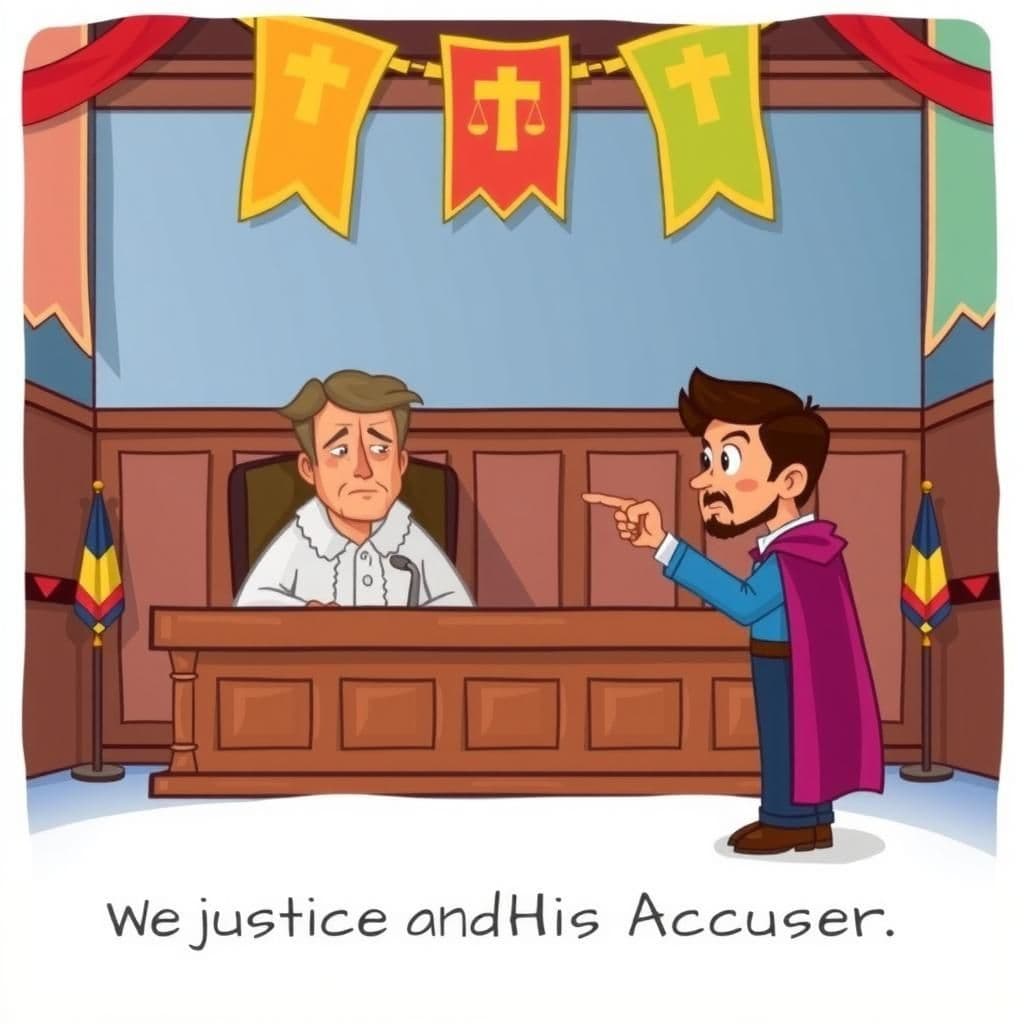The Justice and His Accuser
In "The Justice and His Accuser," a Supreme Court Justice in Patagascar faces allegations of securing his position through fraud, sparking a thought-provoking moral debate. While the Justice dismisses the significance of his appointment's legitimacy, the Accuser emphasizes that the Justice's misconduct on the Bench is far more critical, illustrating a classic moral lesson about the importance of integrity in leadership. This life-changing story encourages reflection on how power should be wielded responsibly, making it a compelling addition to inspirational short stories with moral lessons.

Reveal Moral
"The true measure of a person's character lies not in how they attain power, but in how they wield it once they have it."
You May Also Like

The Party Manager and the Gentleman
In "The Party Manager and the Gentleman," a simple short story with moral undertones, a Party Manager attempts to persuade a Gentleman to pursue political office through contributions and endorsements. The Gentleman, valuing integrity over ambition, firmly refuses, asserting that seeking servitude is not an honor but a betrayal of his principles. This short moral tale illustrates the importance of staying true to one's convictions, even in the face of pressure and insults.

The Treasury and the Arms
In "The Treasury and the Arms," a Public Treasury, reminiscent of childhood stories with moral lessons, detects Two Arms attempting to pilfer its contents and calls for a division, invoking parliamentary procedures. The Two Arms, recognizing the Treasury's grasp of legislative language, underscore the tension between governance and appropriation, echoing themes found in short moral stories with pictures that teach valuable lessons about integrity and responsibility.

The Patriot and the Banker
In "The Patriot and the Banker," a former politician, having grown rich from questionable gains, tries to open a bank account but is confronted by an Honest Banker who insists he must repay the money he stole from the government first. Realizing the bank's share of the loss is minimal, the Patriot deposits just a dollar, humorously illustrating the lessons learned from stories about accountability and the often feeble attempts at restitution by those who prioritize wealth over integrity. This funny story with a moral serves as a big moral tale, teaching valuable lessons that can resonate with kids and adults alike.